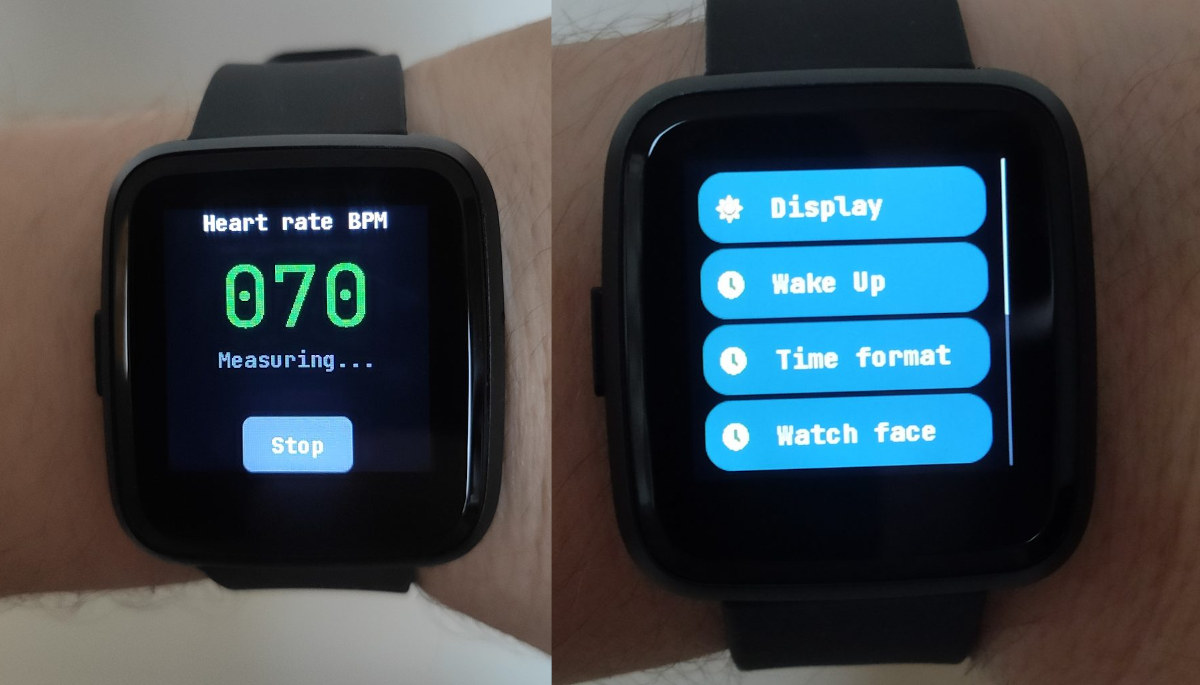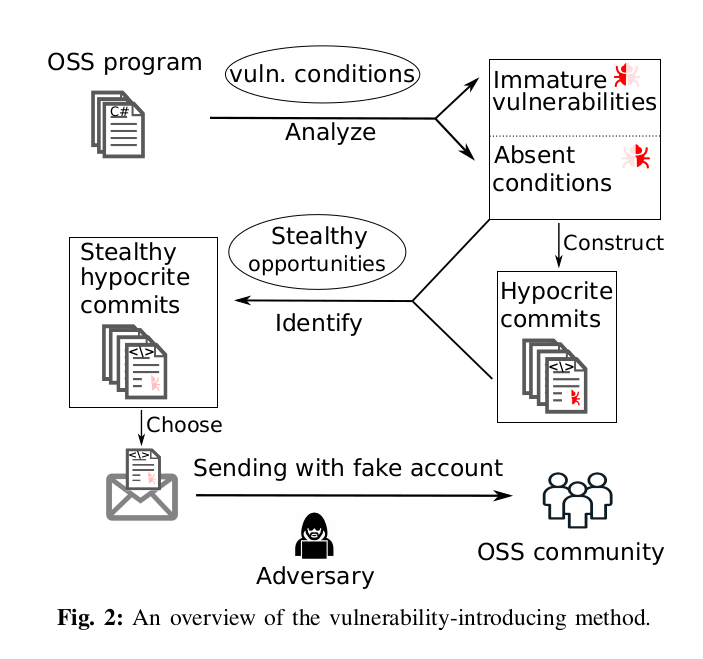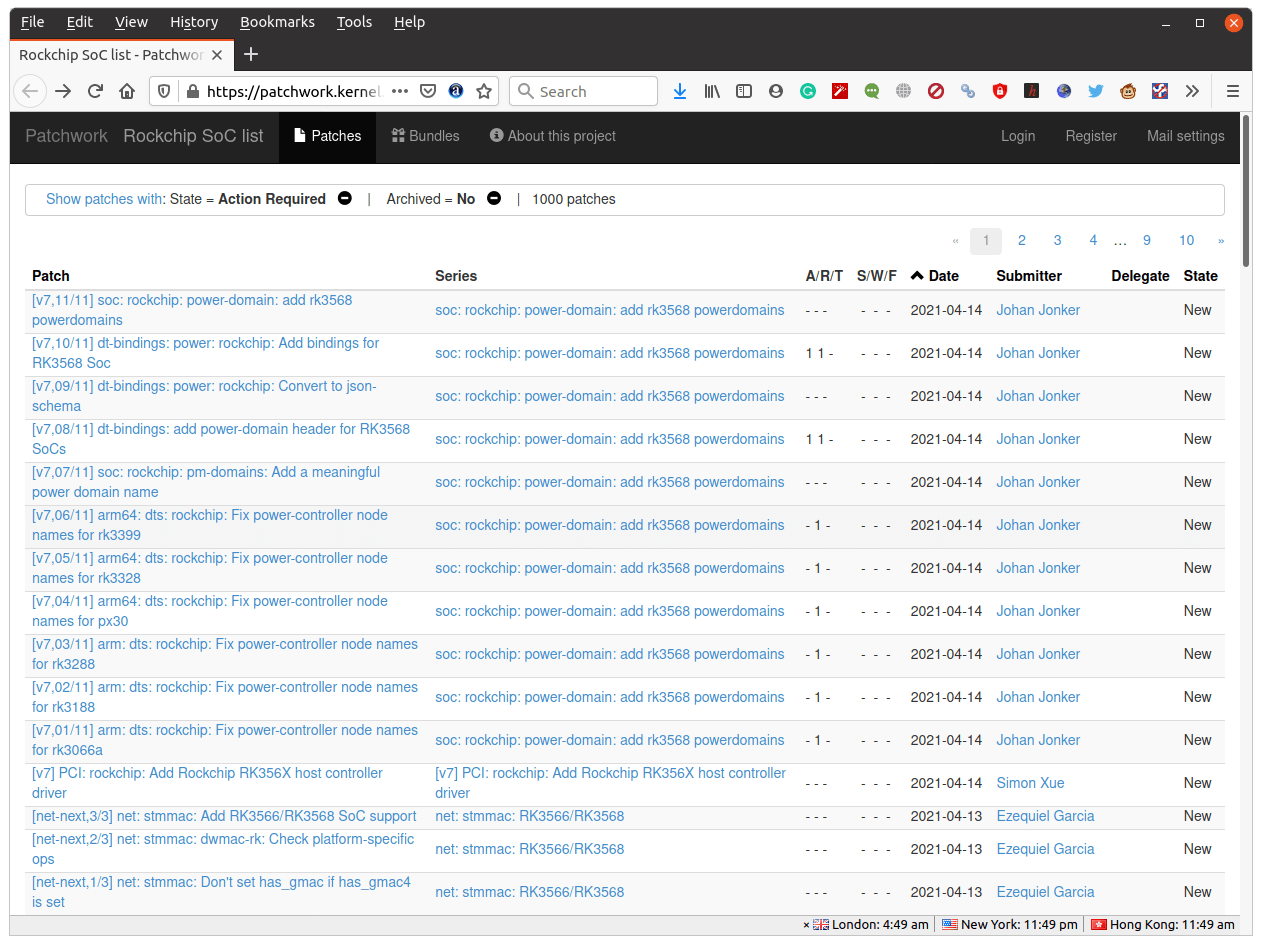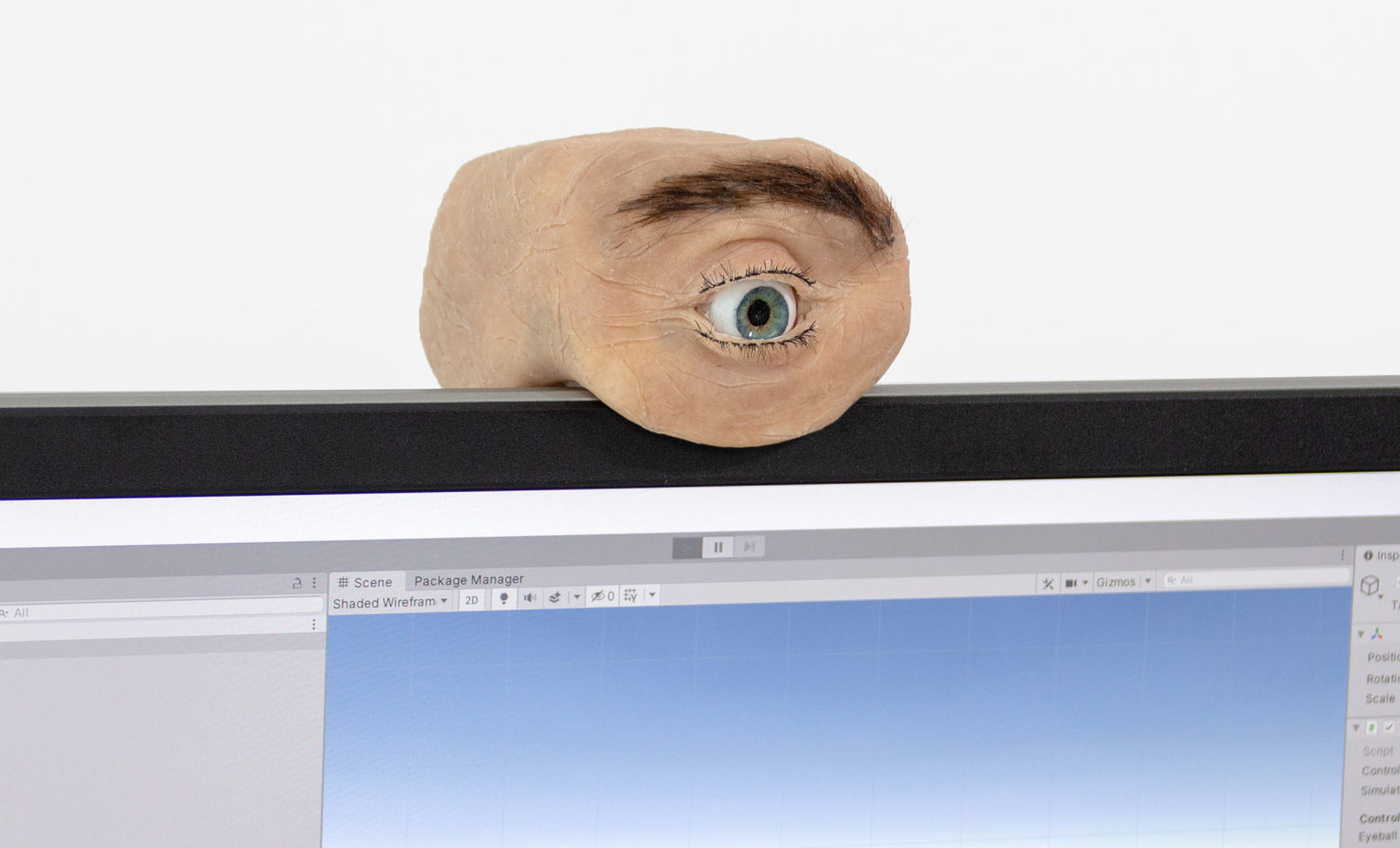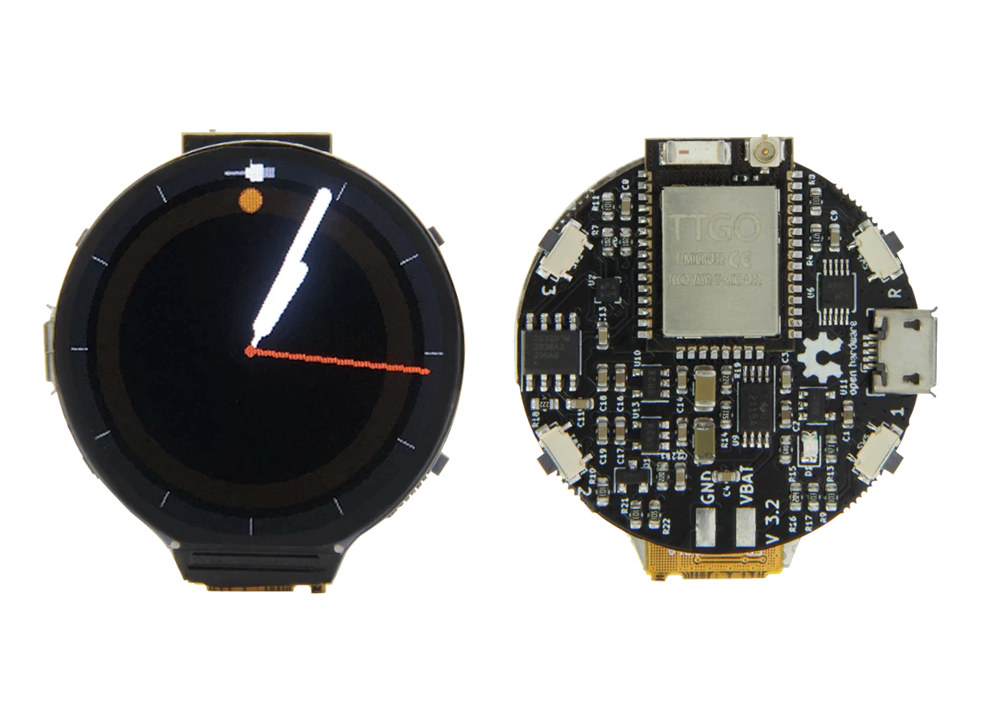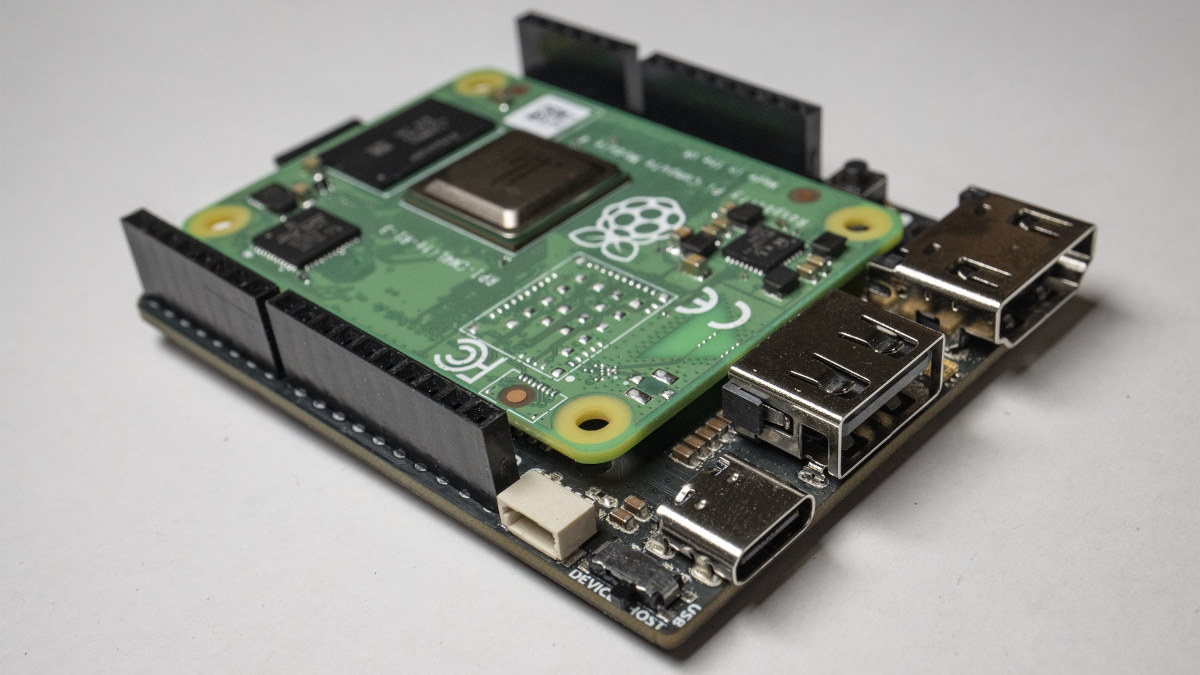China has now an alternative to the Google Summer of Code, an international annual program in which Google awards stipends to students who successfully complete a free and open-source software coding project during the summer. China’s alternative is called “Summer 2021 of Open Source Promotion Plan”, also known as “summer 2021” for short, and is organized by the Institute of Software Chinese Academy of Sciences and the openEuler community. It’s a global program open to college students around the world who want to participate in the development and maintenance of open-source software. There’s only one specific requirement to be able to apply: be at least 18 years old at the time of registration. Selected students will be paid according to the complexity of the project with 12000 RMB ($1,867), 9000 RMB ($1,400), or 6000 RMB ($933) “bonuses” to be distributed at the end of the project. Other stakeholders include the […]
InfiniTime 1.0 firmware released for PineTime smartwatch
The PineTime smartwatch was unveiled and first launched in 2019, as a low-cost, open-source wearables development kit/platform for developers wanting to work on firmware development for the Nordic nRF52 powered device. Progress was made on various solutions such as ATCwatch Arduino firmware, and as time passed, the PineTime slowly became more like an “enthusiast-grade” end-user product. This is basically what it has become with the first stable release of InfiniTime firmware, which was selected as the default firmware in September 2020. The main features of InfiniTime 1.0 firmware include: Two clock faces – digital and analog Apps – Stopwatch, music control, navigation, heart rate, as well as Paddle and 2048 games User settings – Display timeout, time format, wake up conditions OTA upgrades via an open-source bootloader based on MCUBoot Heart rate monitoring and step counting Between 3 and 5 days of battery life depending on usage Firmware based on […]
PhD students willfully committed known malicious changes to mainline Linux
We just reported about the Linux 5.12 changelog with a focus on Arm, MIPS and RISC-V targets on Tuesday, and at the time, the expectation was a delay of about one week after Linux 5.12-rc8 was outed on Sunday, April 18. But Linux 5.12 could be further delayed due to shenanigans from two Ph.D. students doing a research project on open-source vulnerability at the University of Minnesota. This was announced by Greg Kroah-Hartman on the Linux kernel mailing list. Commits from @umn.edu addresses have been found to be submitted in “bad faith” to try to test the kernel community’s ability to review “known malicious” changes. The result of these submissions can be found in a paper published at the 42nd IEEE Symposium on Security and Privacy entitled, “Open Source Insecurity: Stealthily Introducing Vulnerabilities via Hypocrite Commits” So their work at to be reverted with 190 reversions so far. It also […]
RK3566 & RK3568 processors to get Linux mainline support soon
Rockchip RK3566 & RK3568 processors were just officially announced at the end of the year, and soon followed with announcements of related such as Core-3568J AI Core system-on-module, some Android 11 TV boxes, Station P2 mini PC, and RK3566/RK3568 development boards. But it did not take long, as RK3566/RK3568 are about the get support for mainline Linux, with engineers from Collabora and Rockchip having recently committed preliminary support for RK356x platforms, notably using Pine64 Quartz64 SBC for testing. The most recent commits target power management, networking, and the PCI host controller. It’s not clear when code will be merged to mainline, but Collabora said “Pine64 Quartz64 SBC out-of-the-box support is right around the corner” in a recent tweet. In any case, it’s good news there’s active development for mainline Linux on the new Rockchip processors, as that means it will be possible to run the latest version of Linux on […]
Eyecam open-source webcam will make you feel spied on
Most people will use webcams connected to a computer or integrated into a laptop without thinking about the possibility of being spied on, but Eyecam will certainly raise awareness and make you feel like somebody is truly watching. The open-source webcam is shaped like a human eye and acts like one thanks to a Raspberry Pi camera and an Arduino board controlling six servos for eyeball, eyelids, and eyebrows movements. The project was conducted at Saarland University in Germany, and Eyecam looks amazingly realistic – and creepy – with the eyeball and eyelids moving, especially when face tracking is enabled, and expressions are possible with servos controlling the eyebrows. The webcam is comprised of 3D printed parts, a Raspberry Pi camera connect to Raspberry Pi Zero recognized as a USB webcam from the host, and an Arduino Leonardo Pro Micro to control the 6 servo motors. On the software side, […]
LilyGo sells Open-Smartwatch open-source hardware ESP32 watch by “Paul’s 3D Things”
We’ve previously covered three variants of LilyGo T-Watch-2020 smartwatch based on ESP32 WiFi & Bluetooth SoC with TTGO T-Watch-2020 (V1) launched about a year ago, following by T-Watch-2020 V3 with a microphone for voice control, and T-Watch-2020 V2 with GPS. The company has recently launched a new rounded smartwatch based on ESP32-PICO-D4 SiP with a twist as they did not design it themselves and instead partnered with “Paul’s 3D Things” for the Open-Smartwatch, and just handle manufacturing and production. LilyGo Open-Smartwatch “Light Edition” specifications: Wireless module – LILYGO T-micro32 module based on ESP32-PICO-D4 module with dual-core ESP32 processor, 4MB FLASH, ceramic antenna or u.FL antenna connector Connectivity – Bluetooth 4.2 BR/EDR BLE and WiFi 4 2.4GHz 802.11 b/g/n Display – 1.3 inch circular LCD with 240×240 resolution USB – Micro USB for charging and programming Sensor – 3-axis BMA400 accelerator Debugging – USB to TTL via CH340E chip Misc -Reset […]
The OSFPGA Foundation aims to promote open-source FPGA tools and IP blocks
There are been some initiatives to work on open-source tools for FPGA. Major FPGA vendors have made limited efforts, with for example Xilinx recently releasing the source code for HLS FPGA tool’s front-end, but most of the work is done by the community with projects like Symbiflow dubbed the GCC of FPGAs, or Project IceStorm for Lattice Semi FPGAs. Industry veterans and academics have decided to launch the Open-Source FPGA (OSFPGA) Foundation that aims to bring together companies, universities, and individuals to advance open-source FPGA capabilities, establish cooperation channels, promote outreach and education, and coordinate joint efforts around an open-source FPGA ecosystem. The OSFPGA Foundation goals go beyond just providing open-source tools, as the vision statement also mentions “open-source FPGA & eFPGA fabrics”, the Github page also includes IP blocks with the FuseSoC package manager for IP cores, the Skywater Open-source FPGAs, and LiteDRAM lightweight, configurable DRAM core. Current board […]
Piunora has the guts of a Raspberry Pi 4 with Arduino form factor, M.2 PCIe socket (Crowdfunding)
The Raspberry Pi 4 is a pretty cool board, but if you wished it was just a bit smaller, and you could use the PCIe interface exposed by the Broadcom BCM2711 processor more easily, Timon has designed Piunora carrier board for the Raspberry Pi Compute Module 4. The solution provides a board with the guts of Raspberry Pi 4 SBC but using the Arduino form factor including access to the six ADC pins, and an M.2 socket with the PCIe signal from the Broadcom SoC. Piunora carrier board specifications: SoM compatibility – Raspberry Pi CM4 module with Broadcom BCM2711 quad-core Cortex-A72 processor @ 1.5 GHz, 1 to 8GB RAM, optional 4GB to 32GB eMMC flash, optional wireless module with 802.11b/g/n/ac WiFi 5 and Bluetooth 5.0 Storage – 1x MicroSD card socket (for the OS when using Raspberry Pi CM4Lite system-on-module) Video Output – 1x HDMI 2.0 port up to 4Kp60 […]



